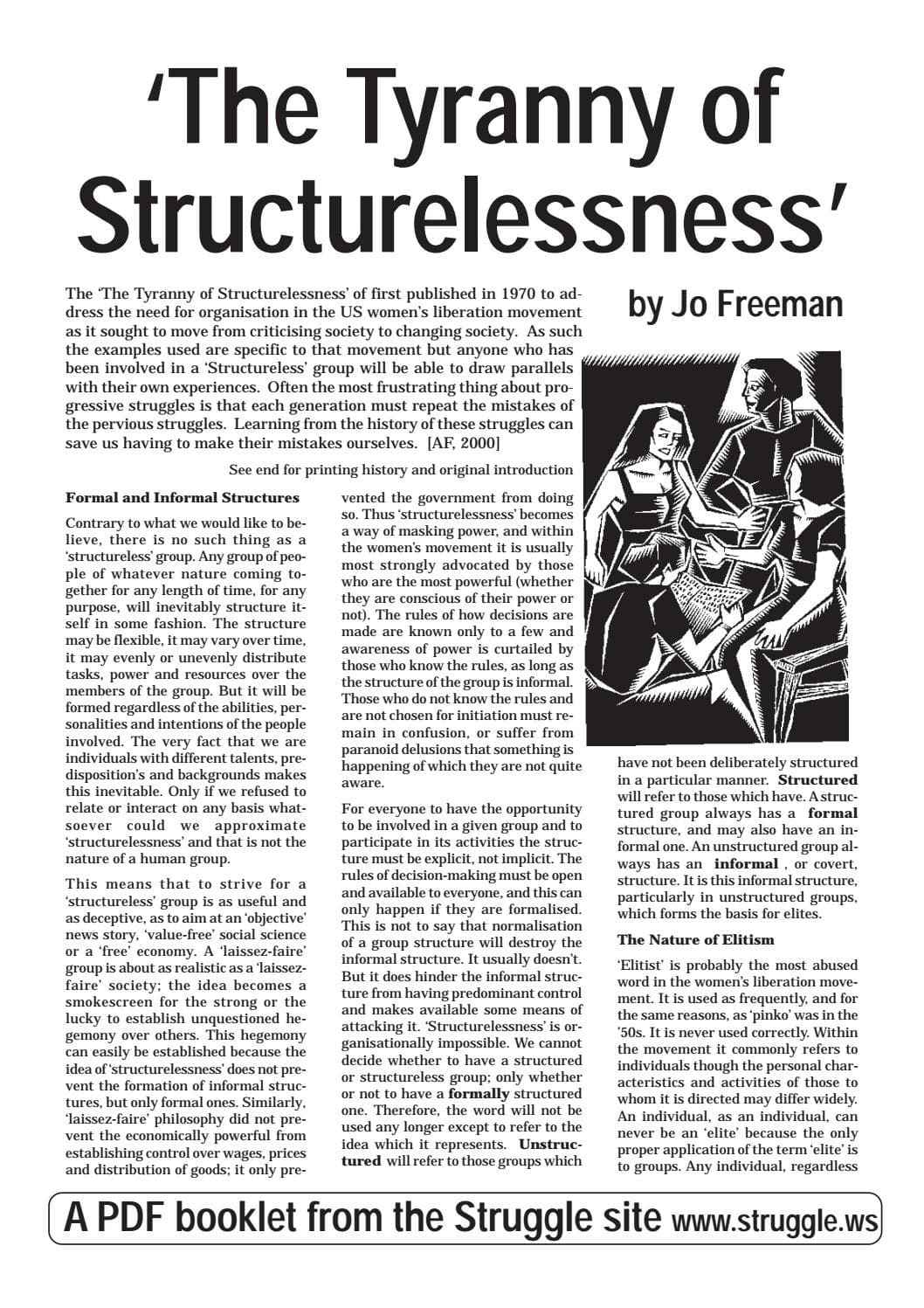Diffusion of information to everyone as frequently as possible. Information is power. Access to information enhances one's power. When an informal network spreads new ideas and information among themselves outside the group, they are already engaged in the process of forming an opinion -- without the group participating. The more one knows about how things work and what is happening, the more politically effective one can be.↱

The Tyranny of Stuctureless
Jo Freeman aka Joreen
Loading highlights…